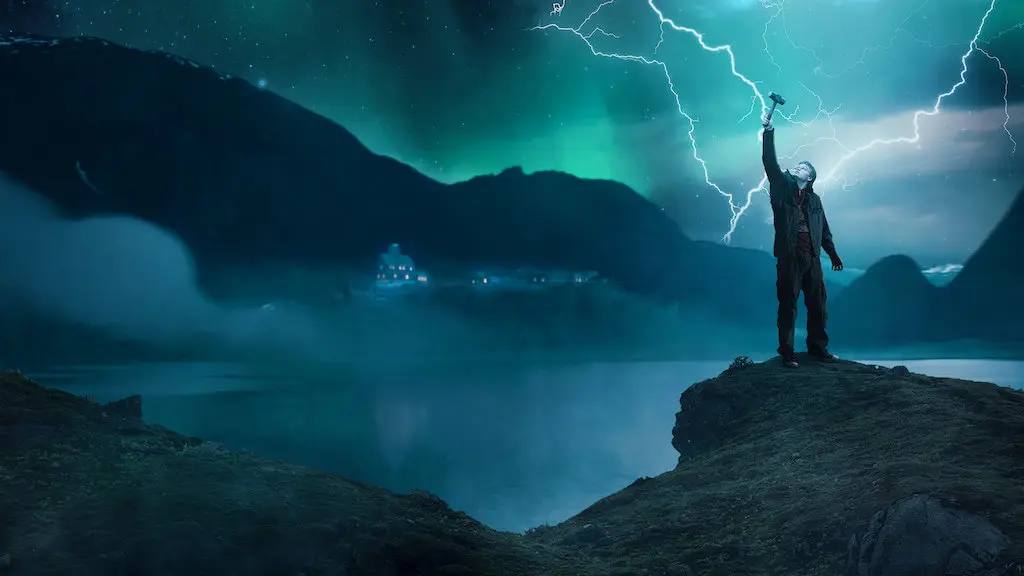Summary
Ragnarok season 2 improves on its predecessor by leaning more into its fantasy elements than dull YA drama, but it’s still burdened by stupidity, hammy writing, and the lack of an actual ending.
This review of Ragnarok Season 2 is spoiler-free.
Ragnarok, Netflix’s Norwegian Norse mythology YA drama, didn’t exactly get off to the best of starts in a torpid first outing that put various iconic figures from the crackling pantheon to work in a climate change parable spliced with a teen romance. It wasn’t awful, but it was dull and hammy and didn’t make much use of a deep storytelling well full of gods and giants and mythical weapons and inclement weather. The second season, all six episodes of which are out today, is better by virtue of leaning into its more fantastical elements, but it’s still burdened by a wealth of clunky writing, some perplexing character logic, and the lack of a real ending — though with Netflix originals that’s less a flaw than a badge of honor.
Things continue off from where we left them, with Thor reimagined as Magne (David Stakson), a friendless dyslexic teenager, and trickster Loki his androgynous younger brother Laurits (Jonas Strand Gravli). Throughout the first season, both came into conflict with the Jutul family, patriarch Vidar (Gísli Örn Garðarsson), his wife Ran (Synnøve Macody Lund), and their kids Fjor (Herman Tømmeraas) and Saxa (the disarmingly beautiful Theresa Frostad Eggesbø), all of whom are secret Jotun, or giants, who have quietly blended into the society of Edda, a fictional Norwegian town, and kept their noses clean by… operating massive factories that are poisoning the water supply and ruining the environment. Fjor begins the season still having abandoned his family largely to be with his girlfriend, Gry (Emma Bones), and Magne is fresh from a knock-down-drag-out brawl with Vidar which only ended when he pulled lightning from the heavens and barbecued the pair of them.
Ragnarok Season 2, then, benefits from the basis of this conflict already having been established and moves ahead with clearer stakes as both sides prepare for an impending war. On the immediate agenda is acquiring weapons — both teams are invulnerable to everything other than special weapons — and recruiting new allies, which on the gods side of things includes seductress Iman (Danu Sunth), elderly one-eyed Wotan (Bjørn Sundquist), and self-serving mechanic Harry (Benjamin Helstad), all of whom are stand-ins for various well-known figures from Norse mythology.
All this stuff is mostly fine, and certainly includes more superpowered action than the first season had, but it’s similarly weighed down by a fondness for love triangles and coming-of-age tropes. Laurits fares worse than anyone since his questionable parentage — which is obviously integral to the mythos — doubles as a metaphor for him struggling with his sexuality and identity, making for some clumsy writing and a fair few rash decisions that play less as a trickster god having fun and more like nobody on the writing team having any idea whatsoever what they want him to be doing. Several characters have similar heel or face turns that happen out of nowhere, one semi-important supporting character just ups and leaves town, and Magne has to go through a played-out will-he-won’t-he arc once his newfound powers cost him more than he bargained for.
Ragnarok remains a lovely-looking show, but in a way, that’s symptomatic of all its problems. It’s much more concerned with facile superficiality than it is the genuine interiority of its characters, and it’s happier for them to be stand-ins for mythical figures or broad ideas than well-rounded characters in their own right. It’s certainly better than it was, especially since the hamfisted focus on climate change is much less prominent, but this remains a lesser entry in the stacked YA genre, and this latest outing does little to change that. Maybe the inevitable third season will be the winner.



